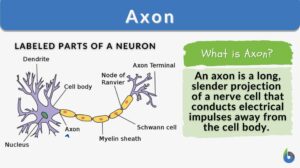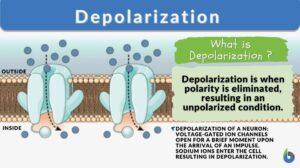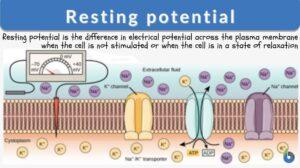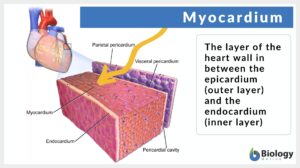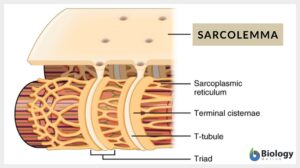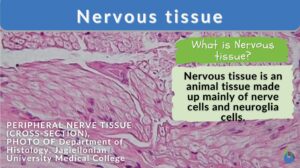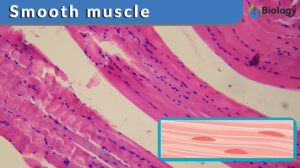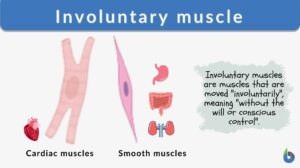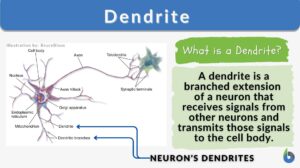Search Results for: action
Axon hillock
Axon Hillock Definition What is axon hillock? If you are familiar with the different parts of the neuron, the axon hillock... Read More
Capillary action
Definition noun The movement of a liquid, e.g. water molecules, through a narrow space as a result of cohesion, adhesion,... Read More
Actions of Caffeine in the Brain with Special Reference to Factors That Contribute to Its Widespread Use
IV. Actions of Caffeine on Brain Functions and Behavior Having discussed the molecular and neuronal actions of caffeine,... Read More
Neural Control Mechanisms
Nerve cells called neurons generate electric signals that pass from one end of the cell to another and release chemical... Read More
Action potential
Definition noun A short-term change in the electrical potential on the surface of a cell (e.g. a nerve cell or muscle cell)... Read More
Depolarization
Depolarization is the removal of polarity by a process or action. It might also be used to describe how such activity leads... Read More
Antagonistic Muscle
Definition of Antagonistic Muscle What does the term “antagonistic” mean? As the name suggests, the word antagonistic... Read More
Inhibitory postsynaptic potential
Inhibitory Postsynaptic Potential Definition An inhibitory postsynaptic potential is a type of synaptic potential. It is... Read More
Resting potential
Resting Potential Definition The resting potential of a cell is defined as the difference in electrical potential across... Read More
Permanent Tattoo Means Permanent Immune Action Of Macrophages
Have you ever wondered why a permanent tattoo seemed to last forever? A simple assumption would be is that the ink could... Read More
Mass-action ratio
Mass-action ratio The ratio of the product of all of the product concentrations divided by the product of all of the... Read More
Myocardium
Myocardium Definition What is the myocardium of the heart? It is the muscular middle layer of the heart that is... Read More
Chemical reaction
Definition noun, plural: chemical reactions A process in which one or more substances (reactants) are chemically... Read More
Sarcolemma
Sarcolemma Definition What is the sarcolemma? It is the thin, transparent, extensible plasma membrane of the muscle cell.... Read More
Fight or flight reaction
Definition noun The response or reaction of an animal to a situation perceived as a threat to its survival, which involves... Read More
Nervous tissue
Nervous Tissue Definition Nerve cells (or neurons) and their associated cells, such as neuroglia cells, make up nervous... Read More
Photosynthesis
Photosynthesis is a physio-chemical process carried out by photo-auto-lithotrophs by converting light energy into chemical... Read More
Humoral immunity
Let’s get to know where one should place humoral immunity, the topic of today’s discussion!! By the end of the article,... Read More
Positive feedback
Positive Feedback Definition Each mechanism of the body like temperature, blood pressure, and levels of specific nutrients... Read More
Smooth muscle
The smooth muscle can be described as a type of muscle in the human body that is non-striated and involuntary in action.... Read More
Subliminal stimulus
Definition noun, plural: subliminal stimuli (physiology) A stimulus inadequate to generate an action potential and thereby... Read More
Homeostasis
Homeostasis is the tendency not to stray from the range of favorable or ideal internal conditions. Such conditions must be... Read More
Involuntary muscle
A muscle act typically either under the control of the will or without conscious control. Muscles that can be controlled at... Read More
Axon terminal
An axon terminal is any of the button-like endings of axons through which axons make synaptic contacts with other nerve... Read More
Putrefaction
putrefaction 1. The act or the process of putrefying; the offensive decay of albuminous or other matter. Putrefaction is a... Read More
Muscular system
Muscular System Definition What is the muscular system? The muscular system is a system that includes muscle cells and... Read More
Light-dependent reaction
Many organisms, such as green plants, convert light energy into chemical energy through the mechanism of photosynthesis. In... Read More
White reaction
white reaction The response seen in many individuals after the skin is lightly stroked with a blunt instrument; it is... Read More
Gene Action – Operon Hypothesis
Reviewed by: Mary Anne Clark, Ph.D. Some genes are switched on or off depending on environmental conditions. The... Read More
Lock-and-key model
Lock-and-key model Definition Lock-and-key model is a model for enzyme-substrate interaction suggesting that the enzyme and... Read More
Endoplasmic reticulum
Endoplasmic Reticulum Definition The endoplasmic reticulum is a membrane-bound organelle in cells of eukaryotic cells... Read More



